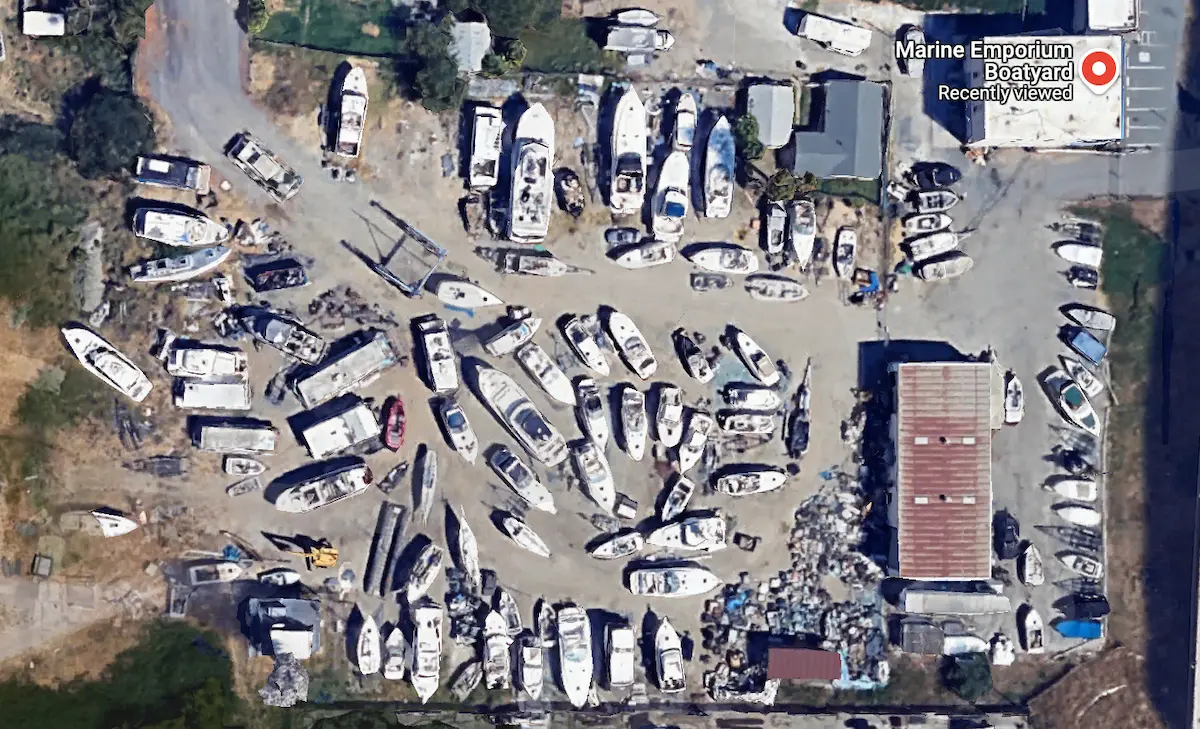Navigating the waters of boating regulations can be as challenging as steering through choppy seas. So how old do you have to be to drive a boat? The age requirements for boat operation are more complex than expected, with variations across jurisdictions and vessel types.

Age Requirements for Boating
Age requirements for boating are critical to nautical safety. Younger individuals may lack the physical strength, cognitive development and experience necessary to operate a boat safely, particularly in emergencies. They may struggle with crucial tasks such as properly launching a boat, navigating through congested waterways or responding to sudden weather changes.
While anyone can take their kids out boating with them from birth, how old you have to be to drive a boat independently varies widely across the United States. Some states, like Alaska and Idaho, have no minimum age requirements, and others set specific age limits.
For instance, Alabama allows 12-year-olds to operate certain vessels (with 14 being the minimum age to operate alone), while California sets the bar at 16 for motorboats over 15 horsepower. In New Hampshire, the minimum age to operate a boat with more than 25 horsepower on lakes is 16. States like Michigan and Florida have no minimum age for general vessels but impose restrictions on younger operators.
Legal Requirements and Restrictions for Young Boaters
Many jurisdictions impose additional restrictions to mitigate risks associated with younger operators. These may include supervision requirements, where a young boater must be accompanied by an adult, usually 18 or older. For example, in Arkansas, direct supervision is required for operators under 12, but those between 12 and 15 can drive a boat unaided if they’ve completed a boating education course.
Horsepower limitations are another joint restriction. In Michigan, children under 12 may only operate boats with motors of 6 horsepower or less without supervision. Such limits ensure that younger operators begin with more manageable vessels before progressing to more powerful craft.
Types of Watercraft and Age Restrictions
How old you have to be to drive a boat also varies based on the type of watercraft being operated. Generally, motorboats with higher horsepower ratings have stricter age restrictions. For example, in many states, children as young as 12 can operate small motorboats or sailboats independently, but they may need to be 16 or older to operate more powerful vessels.
Personal watercraft (PWC), such as Jet Skis, often have more stringent age restrictions due to their high maneuverability and potential for high-speed operation. In states like California and Florida, operators must be at least 14 years old to operate a PWC alone, and some states require operators to be 16 or even 18.
Sailboats have more lenient age restrictions, as they’re considered less dangerous than motorized craft. However, size and local regulations can influence the minimum operator age.
Do I Need a Boating License?
Boating license requirements are not universal — they depend on factors such as age, boat type and the water body being navigated. Many states have implemented mandatory boating safety education to receive a boating license. Others require a boating license only for specific lakes.
For instance, in Maryland, anyone born on or after July 1, 1972, must possess a valid certificate of boating safety education to operate a motorized vessel.
Different types of licenses may exist depending on the type of boat. Some jurisdictions differentiate between licenses for motorboats, sailboats and PWCs. It’s crucial to check local regulations to ensure compliance with specific licensing requirements.
The Consequences of Boating Without a License
Operating a boat without the necessary license can lead to severe consequences. Legal implications may include fines, suspension of boating privileges and criminal charges in cases of repeated offenses or accidents resulting from unlicensed operation.
Beyond legal ramifications, unlicensed operation poses significant safety risks. Boating education associated with licensing ensures operators are familiar with navigation rules, safety procedures and emergency protocols. Without this knowledge, unlicensed operators may inadvertently endanger themselves, their passengers and other boaters.
How to Obtain a Boating License
Obtaining a boating license involves completing a boating safety course and passing an examination. Many states offer in-person and online courses, making education accessible to aspiring boaters.
Boating license age requirements vary based on jurisdiction. For example, in Wisconsin, boaters born on or after January 1, 1989, and at least 16 years old must complete a boating safety course to operate a motorboat.

Age-Related Boating Education Requirements
It’s important to get kids out on the sea when they’re young, as early introduction can help them become more comfortable with the water. However, boating safety education is paramount, especially for younger operators. While parents and older boaters can explain the basics, such as the parts of a boat, young boaters need to receive in-depth boating and maritime safety education.
These courses cover a comprehensive range of topics, including the basics of safely driving a boat, boating laws and responsibilities, safety practices, the meaning of boat measurement terms, navigation skills and emergency procedures. They provide a foundation of knowledge that can reduce the risk of accidents and ensure more enjoyable boating experiences.
The minimum age for taking boating safety courses often aligns with the minimum age for independent boat operation. However, many states encourage early education, allowing individuals as young as 10 or 12 to take these courses in preparation for future boat operation.
Boating safety education requirements vary across states. Some, like Alabama, require education for operators as young as 12. Others, like California, mandate courses for those convicted of moving violations.
Many states have implemented phased boating license age requirements, enforcing education for certain age groups or those born after specific dates. For instance, there’s no minimum age to operate a boat in Florida. Operators born on or after January 1, 1988, must complete a boater education course to operate a vessel with 10 horsepower or more. In Texas, anyone born on or after September 1, 1993, must complete a boater education course to operate certain vessels.
Impact of Education on Licensing
Successful completion of a boating course can substantially impact licensing, particularly for younger boaters. Many states offer provisional or graduated licensing systems based on age and education. For instance, in some jurisdictions, completing a safety course may allow a 14-year-old to operate a boat independently, whereas those without the course may need to wait until they’re 16.
Some states, like Tennessee, have implemented a system where residents born after a certain date must pass a proctored exam to obtain their boating license. This approach ensures that all new boaters, regardless of age, possess a baseline knowledge before taking the helm.
Final Thoughts
How old you have to be to drive a boat varies by location, vessel type and other factors. While some jurisdictions allow operators as young as 12, others maintain stricter age limits. Boating license requirements further complicate the landscape, with many states mandating safety education for operators of all ages.
Ultimately, these regulations aim to ensure safe and responsible boating practices. By understanding and complying with local laws, boaters of all ages can contribute to a safer, more enjoyable maritime environment.
Frequently Asked Questions
How old do you have to be to drive a boat in the United States?
The minimum age varies by state and vessel type, ranging from no minimum age in some states to 16 years in others. For example, Alabama allows 12-year-olds to operate certain vessels, while California sets the minimum age at 16 for motorboats over 15 horsepower.
Can teenagers drive boats?
Yes, teenagers can drive boats in many jurisdictions, often with certain restrictions. These may include completing a boat safety course, adhering to horsepower limitations or being supervised by an adult.
Do I need a boating license if I’m visiting another state or country?
Boating license requirements can vary between jurisdictions. Some states or countries honor out-of-state licenses or other country’s licenses, while others may require visitors to comply with local regulations. It’s vital to check the specific requirements of your destination before operating a vessel.
How long does it take to get a boating license?
The time to obtain a boating license varies depending on the state and course format. Online courses can often be completed in a day, while in-person courses may span several days. After course completion, processing times for license issuance range from a few days to a few weeks.
What happens if I let someone underage drive my boat?
Allowing an underage individual to operate your boat can result in legal consequences, including fines and potential liability in case of accidents. It may also void insurance coverage, leaving you financially responsible for damages or injuries.
Are there any exemptions to needing a boating license?
Some states provide exemptions for certain scenarios or vessel types. For instance, operators of small, low-powered boats or those born before a specific date may be exempt in some states. These exemptions vary widely, and it’s always best to check local regulations.
- The 15 Most Exciting New Ships of 2025 – January 6, 2025
- How Old Do You Have to Be to Drive a Boat? – November 12, 2024
- The Engineering Behind Ice-Class Vessels – September 20, 2024



